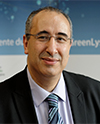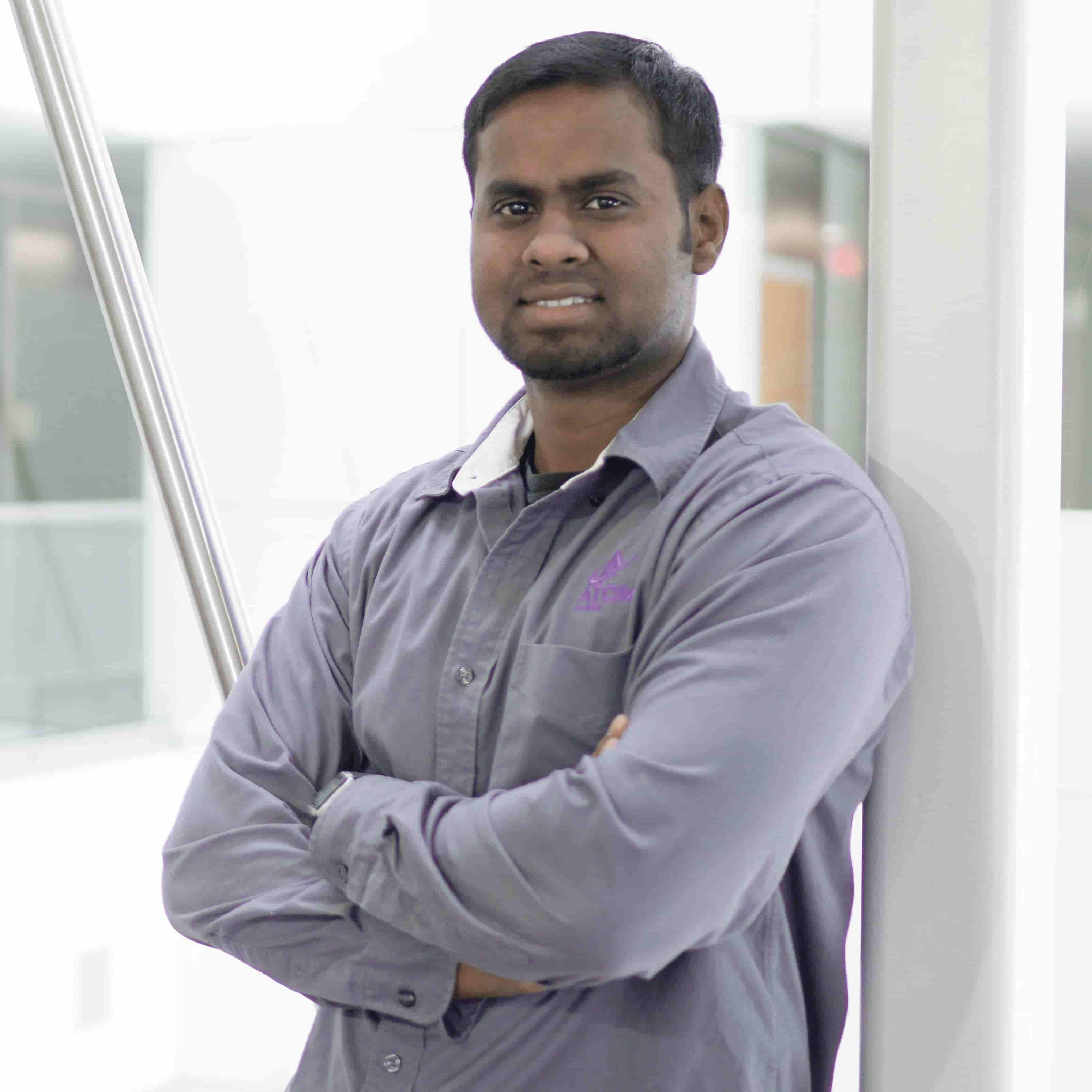Are Smart Grids Enablers for Smart Cities?
By Nouredine Hadjsaid
For the past few years, smart grids have been the main topic of fervent research and development at both the industrial and academic levels. It is anticipated, among many experts, that smart grids will be the enablers of a high penetration of renewable energy, facilitators of a wide adoption of electrical vehicles, catalysts for increased awareness and involvement of the end-user in the energy scene, and altogether contributors to the creation of a sustainable lifestyle for the eco-aware 21st Century citizen. However, all these prospected transformations also bring with them numerous challenges and opportunities for society, as a whole. Future cities will, thus, be fully impacted by these transformations as, according to some prospects, about 70% of the world’s population is expected to live in cities by the year 2050.
Indeed, smart grid technologies are on the rise with a large number of completed, ongoing and upcoming demonstration and deployment projects worldwide. On the other hand, smart city projects are also fast developing worldwide, and include a myriad of issues that must be considered in the process, including the interaction of energy, water, waste, mobility, air pollution, monitoring and data management. The end result depends on each city’s objectives and unique particularities, as well as, on its decision makers, who are very often not experts on energy in general and on smart grids in particular. Their main concern is to handle citizen needs on key quality of life issues related to daily life and societal concerns such as sustainability, housing, pollution, job creation, easy access to basic facilities and utilities, and other day-to-day constituent concerns.
In this context, many conferences dedicated specifically to smart city challenges, projects, achievements and feedback experiences are regularly organized worldwide. Sometimes, issues related to smart grids are discussed during these smart cities conferences and vice versa. However, there is no event worldwide that is totally dedicated to linking smart grid technologies and concepts to smart city needs and development.
In order to effectively address some of the questions that arise from this inevitable phenomenon, IEEE Smart Grid, in collaboration with “Think Smart Grids”, the organization assembling smart grid stakeholders in France, is gathering experts from the energy, telecommunications, and computing sectors, as well as, from the sociology and investment sectors in its first ever 2016 IEEE International Forum on Smart Grids for Smart Cities (SG4SC), October 16th through the 18th this year, at Les Salons de l’Hôtel des Arts & Métiers in Paris, France. The main objective of the Forum is to discuss the link between smart grids and smart cities and particularly the role of smart grids as a key and fundamental technological brick for smart cities.
For this purpose, the forum program uniquely positioned and has been established to cover the key linking technical and non-technical areas of mutual interest including:
- Building, Eco-district and Demand Response Challenges
- Distributed Energy Resources (DER) and Electric Vehicle (EV) Integration in Smart Cities
- Integrated Approaches to Smart Energy Systems
- Smart Metering and Standards Evolution
- New Stakeholder Roles - Citizen Engagement Challenges
- New Business Models, Regulation and Investment Strategies
- New Intelligence, Communications and Technology (ICT) Architectures/Smart City Applications and Cyber Security
These topics are supplemented with two keynotes introducing the issues of: (1) smart grids as enablers for smart cities, and (2) smart grids integration in urban infrastructure Investments.
This premier event will offer comprehensive panel sessions featuring prominent actors from both the smart grid and smart city communities, each providing a unique international perspective on technology, applications, standards and policy pertaining to “Smart Grids as Enablers for Smart Cities and Other Smart Community Solutions”. Each topic will offer input from different stakeholders including decision makers, experts, and testimonies along with feedback experience to the attendees whom will, in turn, have the opportunity to offer contributions through an open discussion. The speakers have been selected among a list of prominent CEOs of relevant utilities and companies, IEEE members of executive boards, European Union Officers, regulators, technical directors of relevant companies, ministry and local community organizations, academia, standards associations, and global business organizations.
The forum will be concluded with key recommendations to decision makers summarizing the various contributions and discussion on how smart grids can be enablers for smart cities.
Along with the forum, three relevant technical visits are organized. They concern the following topics:
- Reference Technology Showcase on the Smart Electric Distribution Grid of the Future: The visit will be organized by ENEDIS, the French Distribution System Operator (DSO). The participants will visit a demonstration area of 400 square meters that is designed as an educational tool, as well as, a place of experimentation of various smart grid operations based on demonstrated smart technologies combining power and information infrastructures. Possibilities offered by the new ENEDIS smart meter "Linky" that will be deployed for 35 million households in the coming years will also be demonstrated. Beyond the demonstration of the smart meters massive roll out, this showroom presents the whole smart chain: demand management, self-healing, observability, advanced grid functions, and more.
- Smart Substation: The “Smart Substation” or “Poste Intelligent” demo project aims at designing, building, testing and operating two fully digital smart substations in the Northern area of France. The project is carried out by a consortium with two major Transmission System and Distribution System Operators in France, RTE and ENEDIS, leading industrial companies, GE Grid Solution, Nokia, Schneider Electric and a startup, Neelogy. Innovative solutions are implemented and tested in real operating conditions with appropriate cyber security measures. The project also assesses the benefits provided by these solutions, such as a lower environmental impact, better integration of the renewable energies, improved transmission capacities, and optimal use of the existing assets.
- Nice Grid Photo Voltaic (PV) Solar Energy District: This project has tackled various aspects linked to PV integration in a local community, the municipality of Carros. The four objectives of the project are to: (1) Integrate distributed PV generation within the grid, (2) Reduce peak demand at the level of the city, (3) Island a low voltage district, and (4) Turn consumers into prosumers.
Registration is currently open. Limited space is available. For more information, please visit www.ieeesg4sc.org.
For a downloadable copy of September 2016 eNewsletter which includes this article, please visit the IEEE Smart Grid Resource Center.
Contributors

Nouredine Hadjsaid is presently a full professor at Grenoble Institute of Technology where he conducts research at G2ELAB (CNRS, Grenoble Institute of Technology, UGA). His main research interests are in the area of “SmartGrids.” He has directed the common academia-industry Research & Innovation center between EDF, Schneider Electric and Grenoble INP (IDEA: Inventer la Distribution Electric de l’Avenir) on Smart Grids from 2001 to 2013. He is presently the Deputy Director of G2ELAB, the director of the ENEDIS industrial chair of excellence on “Smart Grids” and the Chairman of Scientific Council of Think SmartGrids, the industrial SmartGrids banch in France. He is also the animator of the technical program “Power Grids and Storage” for ANCRE (National Alliance for Research on Energy) and the vice chair of IEEE PES “Intelligent Grid and Emerging Technologies Coordination Committee” (ETCC). He received PhD and the “Habilitation à Diriger des Recherches” degrees from Grenoble Institute of Technology in 1992 and 1998, respectively.
To have the Bulletin delivered monthly to your inbox, join the IEEE Smart Grid Community.
Past Issues
To view archived articles, and issues, which deliver rich insight into the forces shaping the future of the smart grid. Older Bulletins (formerly eNewsletter) can be found here. To download full issues, visit the publications section of the IEEE Smart Grid Resource Center.




